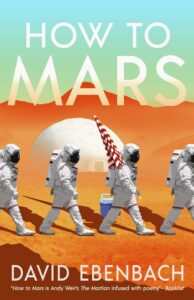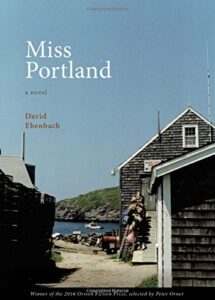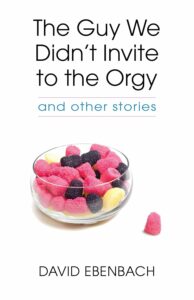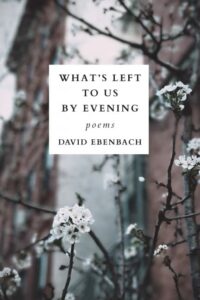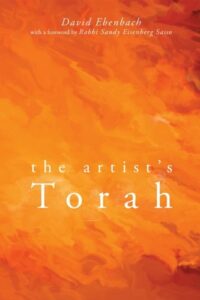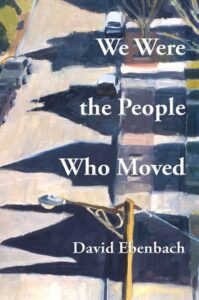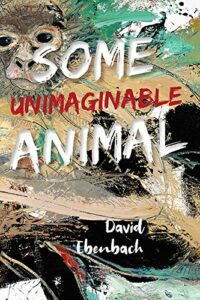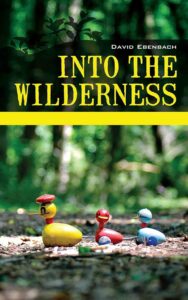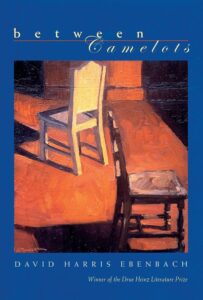Humor Is Key: An Interview with David Ebenbach
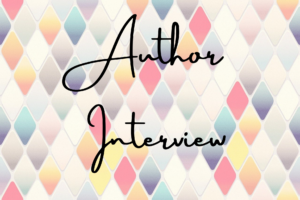 Some authors on the blog come to me via other authors, and David Ebenbach falls into that category. In January, after reading fellow author Karla Huebner’s interview, he reached out regarding his forthcoming work of fiction, saying, “My upcoming novel, Possible Happiness, is really all about mental health and the ways that it can intersect with coming of age.” As many of you know, mental health is near and dear to my heart, so I’ll do anything I can to promote it. The book is a young adult read, so I think it’s even more important to help it find traction. Young adults aren’t the only ones reading and enjoying the book. One reviewer wrote, “Wow—I felt like I was in high school again while reading this book! This novel perfectly captures the late 80s high school experience with humor, heartache, hope, and even a hangover . . . Gen X nostalgia plus timeless teen experiences. Highly recommended!” Another reviewer calls the novel “a must read for anyone who might feel alone and different as they walk the halls of their high school.” Praise like that means the book would be perfect for anyone this holiday season. (Hint, hint.)
Some authors on the blog come to me via other authors, and David Ebenbach falls into that category. In January, after reading fellow author Karla Huebner’s interview, he reached out regarding his forthcoming work of fiction, saying, “My upcoming novel, Possible Happiness, is really all about mental health and the ways that it can intersect with coming of age.” As many of you know, mental health is near and dear to my heart, so I’ll do anything I can to promote it. The book is a young adult read, so I think it’s even more important to help it find traction. Young adults aren’t the only ones reading and enjoying the book. One reviewer wrote, “Wow—I felt like I was in high school again while reading this book! This novel perfectly captures the late 80s high school experience with humor, heartache, hope, and even a hangover . . . Gen X nostalgia plus timeless teen experiences. Highly recommended!” Another reviewer calls the novel “a must read for anyone who might feel alone and different as they walk the halls of their high school.” Praise like that means the book would be perfect for anyone this holiday season. (Hint, hint.)
Welcome, David!
Christina: Fiction, poetry, nonfiction—you write them all. Does one come more naturally to you? Does each fill a different spot in your creativity well? How many projects do you juggle at one time? Finally, do you approach the writing process for each genre differently?
David: I do find it helpful to juggle multiple projects at once, because there’s always a time when one of the projects just isn’t working, and that would be very demoralizing for me—except that I usually have something else to jump to, some other project that might be less hopeless (at least for the moment). In particular, I like to jump back and forth between a novel, short stories, and poetry. Keeps me limber and happy.
Of course, the different kinds of projects demand different kinds of effort. Poems and short stories demand concentrated, short-term focus, while novels require a kind of steady endurance. In that way—and in some others—I think short fiction is more like poetry than it is like a novel. But moving between those kinds of effort keeps me limber too.
Christina: Your bio states that you’ve been “preoccupied with the human condition since 1972.” Why the human condition? What about that topic is so enthralling to you, and why write about it?
David: I guess what I mean about “human condition” is the everyday experience of being alive—not the most extreme moments (birth, death, life-threatening illness, etc.), but just waking up and going about our lives, with all the many choices and questions of purpose that arise along the way. And I think that stuff is fascinating. I mean, I could focus on the huge events of life—and sometimes I do—but most of life is just a string of moments that I suspect accumulate to be, altogether, far more powerful in a person’s journey than any one enormous, single event.
Christina: Your latest novel, Possible Happiness, is “a funny and tender coming-of-age story about developing the courage to face and understand yourself.” Is this a book you would have liked to read when you were younger? Where did the idea for the book come from?
David: Exactly! Yes—this is definitely the book I wish I’d had when I was younger. As you’ll see below, teenaged me had a lot in common with Jacob, the main character of Possible Happiness. Just like Jacob, I was somewhat desperately in need of guidance—and just to have someone say “You are not a freak, and you’re not alone.” I hope this book can help today’s teenagers see that they’re not freaks, and that they’re not alone, either.
The book came from my need to face some of the sadness of my youth. My first novel, Miss Portland, taught me that you can write about mental health struggles without becoming overbearing or unreadable—humor is key—and I wondered if it would be possible to do that when the focus is depression. How does one write a book about depression that’s not a miserable slog? Miss Portland gave me the courage to take a shot.
Christina: Possible Happiness is for readers ages twelve and up. Why write for the younger crowd? What messages do you hope to impart to them?
David: Well, the not-so-secret secret is that I didn’t specifically write the book for the under-18 set. I just wrote a coming-of-age story, and my publisher told me that they thought it worked as a Young Adult novel. I was nervous about that, honestly, partly because I don’t know as much about YA literature as I should—but it does seem like the book is connecting with younger readers. Like I said above, I certainly think I would have gotten a lot out of it as a teenager. I was also nervous about the YA label because I didn’t want it to scare off adult readers, but I don’t think that’s been happening. After all, “twelve and up” includes “and up.”
Christina: The main character, Jacob Wasserman, is “based (very loosely) on a teenaged” you. Was this a case of “write what you know”? How is Jacob like/unlike you? Did you give him any characteristics you wished you had when you were a teenager?
David: Rather than “write what you know,” I tend to follow Grace Paley’s advice to “write what you don’t know about what you know.” In other words, I like to look at some situation with which I’m theoretically familiar—like my own life, for example—and then dig deeper into it to get past the cover story to what’s really going on under there. That was what writing this book was like—it was like finally coming to understand my teenaged self.
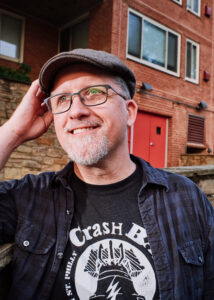
Not that Jacob is entirely like me. In fact, there are plenty of differences. For example, he’s actually a lot more aware of the social, economic, and racial dynamics going on around him than I was at that age. I wish I’d had some of that wisdom back then. But the core element—being a kind of sad kid who didn’t understand himself and who tried to beat the sadness with humor and anger and social success—is something Jacob and I definitely share.
Christina: Let’s talk a little about your day job. You work at Georgetown University, “promoting inclusive, student-centered teaching,” and you also teach creative writing and literature. How does your work inform your writing? Does your writing inform your job?
David: Part of my job is teaching writing, and teaching writing is complicated. Some of my friends find that working with student writers drains them so that they don’t have anything left for their own writing at the end of the day. Me, I actually find it a bit energizing, particularly when students get themselves into interesting messes on the page. Helping them think through a real challenge in their work gets me thinking with excitement about my own pages.
The other part of my job is working with other teachers to help them develop their teaching, and that doesn’t generally have a huge relationship with my writing. But sometimes it sneaks in. For example, one thing I’ve done to support other teachers is to create tip sheets and other bulleted lists of suggestions, and that clearly opened me up to write How to Mars, my novel that partly takes the form of a (mostly ridiculous) handbook for Mars settlers.
So that’s how my day job affects my writing. In the other direction, writing affects all of the above. Writing demands sensitivity, nuance, and thoughtful expression. I hope that I bring that to all of my work.
Christina: I love reading the acknowledgments section of books. In those for Possible Happiness, you mentioned leaning “heavily on the music of the late 80s.” That time period produced, in my opinion, some of the greatest music ever! Who are some of your favorite musicians/songs? What other era of music would you rank as one of the best?
David: The musician from that era that has stayed with me more than any other, and whose career I have really continued to follow, is Nine Inch Nails. (Trent Reznor, if you’re out there, know that you really helped this kid get through the complexity of growing up.)
But there were so many other good bands and musicians back then—Public Enemy, 10,000 Maniacs, U2, Digital Underground, The Cure, The Hooters (a Philly band that has nothing to do with the restaurant chain), etc. It was a great time for music. (You can find a playlist that I created for the book on the Largehearted Boy blog.)
But I suspect most times are great times for music. I loved the hip-hop and grunge of the 90s, the alternative rock of the early twenty-first century, and today you’ve got everyone from Taylor Swift to Kendrick Lamar to, honestly, Nine Inch Nails. (Some of the best musicians keep at it.) In the end, I think you have a special relationship with the music of your youth, but that doesn’t make it better than the music of other folks’ youth.
Christina: Instagram photos can tell us something about a person’s interests, and you sometimes post photos of flowers/plants. Are you an anthophile or floraphile? How does nature inspire you?
David: It’s cool that you checked that out! I grew up in inner-city Philadelphia, so people are often surprised to see how much interest I have in nature. But I’ll be honest: it isn’t about the great outdoors, out in the woods somewhere. (Camping makes no sense to me at all.) What I love is nature against the backdrop of an urban environment. That’s what I was, right? A natural thing thriving in a city? I remember tree roots heaving up sidewalk in my neighborhood of West Philly, my mother’s garden in our little back yard. And so now, living in Washington, DC, I love watching all the bushes and trees bloom through multiple seasons, growing alongside cars in every color; I love the arches of fall foliage over the streets.
And I’m particularly drawn to that beauty now, in the wake of the November Presidential election. That election made the brokenness of the world so palpable. So I need to remind myself that it’s beautiful too.
Christina: You’re an award-winning author. Do those awards play into what literary success means to you?
David: I hope not. Awards are nice, but they’re also a little dangerous. What I mean is that winning a couple of awards for my first book made me wonder if all of my books would win awards—but that was never realistic. There have been some more awards and other highlights, but the publishing experience is just not a straight line upward; there are highs and lows, and it turns out they come in no particular order.
Besides, what success really means to me is reaching people. Every time a reader writes to me to tell me that one of my stories or poems or novels meant something to them, or that they felt seen by that work—that’s what this whole publishing thing is about, for me. So I try to focus first and foremost on the challenge and pleasure of writing—and then, as far as publishing is concerned, I try to focus my attention on reaching people rather than on accolades.
Christina: What are you working on now?
David: I have two current projects. One is a short story collection of speculative fiction called The Moon Rabbi. It’s about dealing with the scary and dangerous parts of ourselves, everyday life, and the universe at large. The second project doesn’t have a title yet, but it’s speculative, too, and focused on the parenting experience, which is an experience of both gifts and loss.
David can be found in multiple places!
Website: https://www.davidebenbach.com/
TikTok: @debenbach
Instagram: @davidebenbach
Facebook: @david.ebenbach
Thanks to David for agreeing to this interview! If you know of an author or artist who’d like to be featured in an interview (or you would like to be featured), feel free to leave a comment or email me via my contact page.


